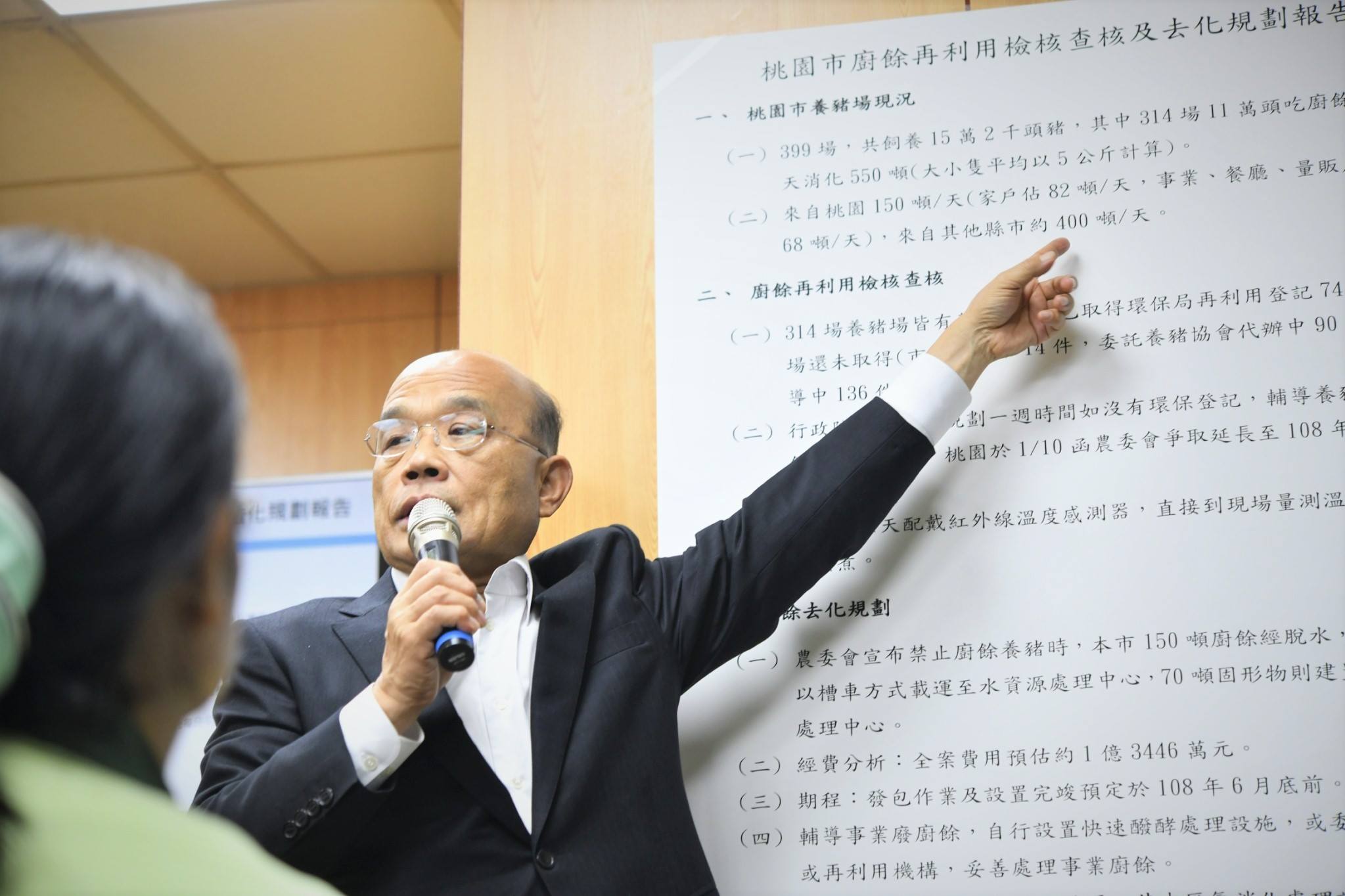
Hong Kong is feuding with Taiwan over a fugitive murder suspect whose case indirectly sparked mass protests in Hong Kong in opposition to an unpopular extradition bill.
Hong Kong officials pleaded on Tuesday for authorities in Taiwan to let the man surrender himself for killing his girlfriend while visiting the self-ruled island last year.
Taiwan’s premier, Su Tseng-chang, rejected the idea, saying Chan Tong-kai should instead go on trial in Hong Kong when he is released Wednesday after serving a sentence for money laundering offences.
Su said Taiwan has offered its co-operation on handling the case since it began but had received no response from Hong Kong.
“Now they drastically changed their attitude, saying that they will send him to Taiwan,” Su said. “This is very strange.”
Formal co-operation with Taiwan would require Hong Kong, a semi-autonomous Chinese territory, to recognize the island’s legal bodies as a legitimate official authority. That’s something the ruling Communist Party in Beijing wouldn’t stomach because it considers Taiwan a breakaway province and refuses to acknowledge the administration of directly elected President Tsai Ing-wen.
Taiwan later changed tack.
Officials said that with Hong Kong unresponsive to requests for formal co-operation, the Taiwanese government’s Mainland Affairs Council wrote a letter offering to send a team to escort Chan back, said Chiu Chui-cheung, the council’s deputy director.
They hoped Hong Kong officials would receive them and hand over Chan along with any evidence and testimony collected in the case, he said.
“If Hong Kong won’t handle it, we will handle it,” Chiu said. “We hope the Hong Kong side can co-ordinate with our people coming to Hong Kong to verify the identity of the suspect and bring him back.”
There was no immediate response from Hong Kong’s government.
Hong Kong’s leader, Chief Executive Carrie Lam, had cited Chan’s case as one of the main reasons behind proposed changes to Hong Kong’s extradition laws, saying it presented a “loophole” allowing him to avoid being sent back to face charges in Taiwan. But fears that such a law would put residents at risk of being sent to mainland China’s murky judicial system sparked months of chaotic protests that mushroomed into Hong Kong’s biggest political crisis in decades.
Lam was forced to drop the bill. It’s set to be formally withdrawn in a legislative session Wednesday, according to one of Lam’s top deputies, Matthew Cheung, following the continuation of increasingly violent street protests over the weekend.
Chan wrote to Lam last week saying he wanted to return to Taiwan and turn himself in after his sentence ends.
But Su urged Hong Kong to put Chan on trial for the February 2018 murder of girlfriend Poon Hiu-wing instead of giving him “a window of time” in which Chan can travel around after he is freed.
Cheung responded by urging Taiwan not to “complicate a simple issue, and also do not try to exploit politics in order to really achieve a certain gain” at the expense of justice.
“I really appeal to the Taiwanese authorities to tackle the matter with common sense, with compassion,” Cheung said. “We are talking about somebody who is willing to surrender himself and can get back to Taiwan to face trial.”
———
Associated Press videojournalist Taijing Wu in Taipei, Taiwan, and researcher Yu Bing in Beijing contributed to this report.